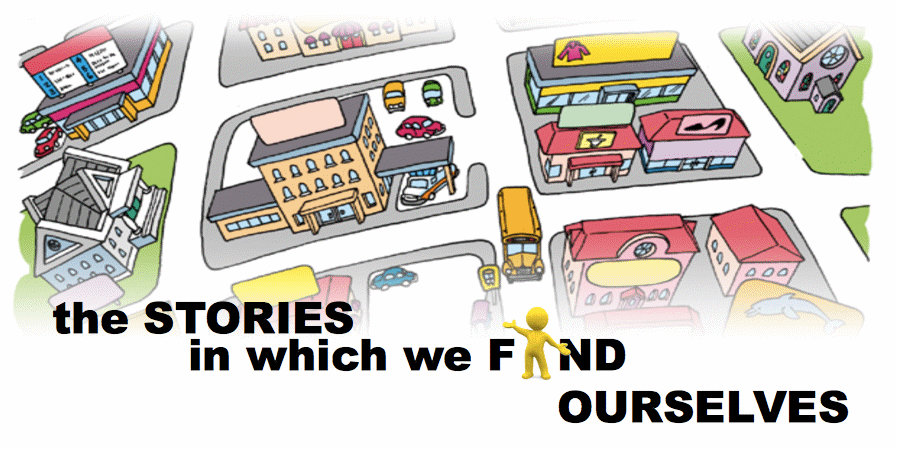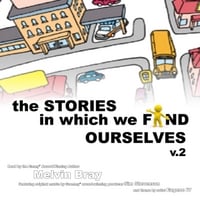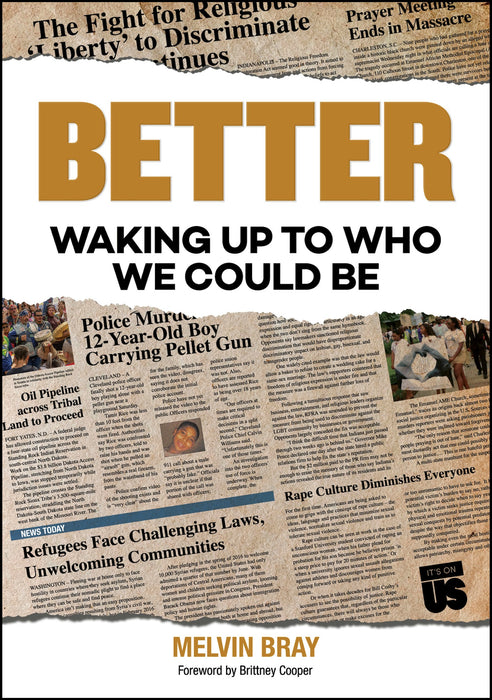Why Too
(in reference to Genesis 1 & 2—a story of creation)![]()
Download a dramatic reading of "Why Too" complete with sound effects and musical score!
Did you know there are two creation stories in the Bible? Really, there are! The first is the creation poem with which most are familiar: "In the beginning... God said ,'Let there be... in our image...' and it was good." The other starts by covering the same ground in a much shorter fashion that offers a distinctly different rationale for why and when things came into being. The second creation story begins:
"In the day that the Lord God made the earth and the heavens, when no plant of the field was yet in the earth and no herb of the field had yet sprung up—for the Lord God had not caused it to rain upon the earth, and there was no one to till the ground; but a stream would rise from the earth, and water the whole face of the ground—then the Lord God formed man from the dust of the ground, and breathed into his nostrils the breath of life; and the man became a living being. And the Lord God planted a garden in Eden, in the east; and there he put the man whom he had formed. Out of the ground the Lord God made to grow every tree that is pleasant to the sight and good for food, the tree of life also in the midst of the garden, and the tree of the knowledge of good and evil. A river flows out of Eden to water the garden."
Some might say, "That discrepancy right there proves the Bible isn't worth the paper it's printed on!" However, rather than weakening the integrity of the Bible, such contradiction early in the narrative seems to me to strengthen the text with a credibility that only diversity can bring. For one thing, scripture immediately assures us of what it is: a collection of richly assorted perspectives—perspectives of God's consistent desire to connect with humanity and the often surprising lengths to which he will go to make connection possible. It doesn't stop there. Scripture also immediately resists our modern desires to make it what it is not: a cohesively written legal constitution to be used to build cases that prove others wrong about God.
Divergence is not a bad thing. By telling the same story different ways we accomplish different things. For example, by telling of creation in an easy to remember poem Hebrew storytellers (those whose stories make up the majority of the bible) could dazzle the imaginations of each new generation of Hebrew children with the wonder of creation and their place in it. By telling the story another time, focusing specifically on the creation of humanity, Hebrew mothers, fathers and rabbis (teachers) were able to teach each new generation important things they had learned about what it meant to be truly human.
Stories remind us of things. The stories of creation in the Bible were first written down at a time when Hebrews desperately needed to be reminded of whose they were. The stories were written down during Babylonian Exile, which you will hear about in detail later. Suffice it to say now that the Hebrew people had been conquered by the Babylonian king Nebuchadnezzar, and many of them had been carried away from Israel (the Hebrew homeland) into Babylon as captives. While captive in Babylon, the Hebrews were introduced to the Babylonians' stories which, as far as the Babylonians were concerned, explained why they were so strong and why they were created to rule other people. According to the Babylonian creation story, in the beginning, there were many gods. They were a contentious bunch, always getting into fights with one another about who was the greatest. One of gods, the one named Marduk, got into a battle to the death with the sea goddess Tiamat and her mate Kingu. Marduk prevailed, and proclaimed himself king of the gods. After killing Tiamat, he cut her body in half. "Not knowing what to do with the body, he used the top half to create the sky and the heavens and the lower half to create the earth. But Marduk still needed someone to populate the earth and tend to its upkeep, so he created human beings out of the blood of the other dead god, Kingu." Uuugggghhhhh!
"Given this story of how humans were created you can guess what kind of value human life had in Babylon—not much! But even worse than how humans were made was why humans were made.... 'After Tiamat had been slaughtered and the world made, it seems that the other defeated and demoted gods had too much hard work to do, too much menial labor. So Marduk created human beings as cheap slave labor to do the dirty work of the lower gods.' And to make sure that the gods did not have to pollute themselves by having too much to do with these slaves, these products of the blood of Kingu, Marduk ordained certain people—people like the high priest, the king and princes, the priests and priestesses and the lords and ladies of the high court [of Babylon]—to be the images of the gods on earth. Where these people [the royal bearers of the image of the gods] could not be, idols would be erected and the idol would image god to the people.
"So there were two kinds of people in Babylon. When the elite of the land looked into the mirror they would see a veritable god! These people would simply exude divinity! Marduk and the other gods would rule through them. But what would anyone else see when they looked in the mirror? They would see a nobody—an insignificant, expendable nobody—a mere slave of the gods."*
Either the Hebrew exiles could believe what the Babylonians told them about who they were and why they were created, or they could remind themselves of their value in the grand scheme of things. They chose the latter.
The true God, Elohim, also referred to in Genesis as YHWH (yah-way or je-ho-vah), in whose image the Hebrews believed humanity was formed, would never create someone for the sole purpose of being a slave. Elohim was a God of equity... Elohim was a God of community... Elohim was a God of duty... And since Elohim was, the Hebrews remained confident that, even in the mist of a society that was not, humanity could be too.
Yes, humanity, every part of it, could reflect the image of God. Not just one person, of one gender—Adam—or one special group of people—Hebrews—but all of humanity. That's what makes the Hebrew stories so special. Unlike the stories of some, the Hebrew myths didn't privilege just the Hebrews. They were stories that embraced the common humanity of everyone. In fact, the word "adam" found in both creation tales means "humanity," not "the first man God created." It was long after the story was first recorded, or at least later in the series, that some people began to think of "adam" as a name for a particular individual.
So through the Hebrews we discover that, however it came to be, life as we know it emerges in a fertile valley, on the shores of an ancient river. And what came first and when and how and the time frame seems completely beside the point when we allow ourselves to become captivated by the beauty of why: to reflect the endless virtue that makes life possible!
How much better a creation tale is that?
*The story of Marduk is taken from Subversive Christianity.










No comments:
Post a Comment